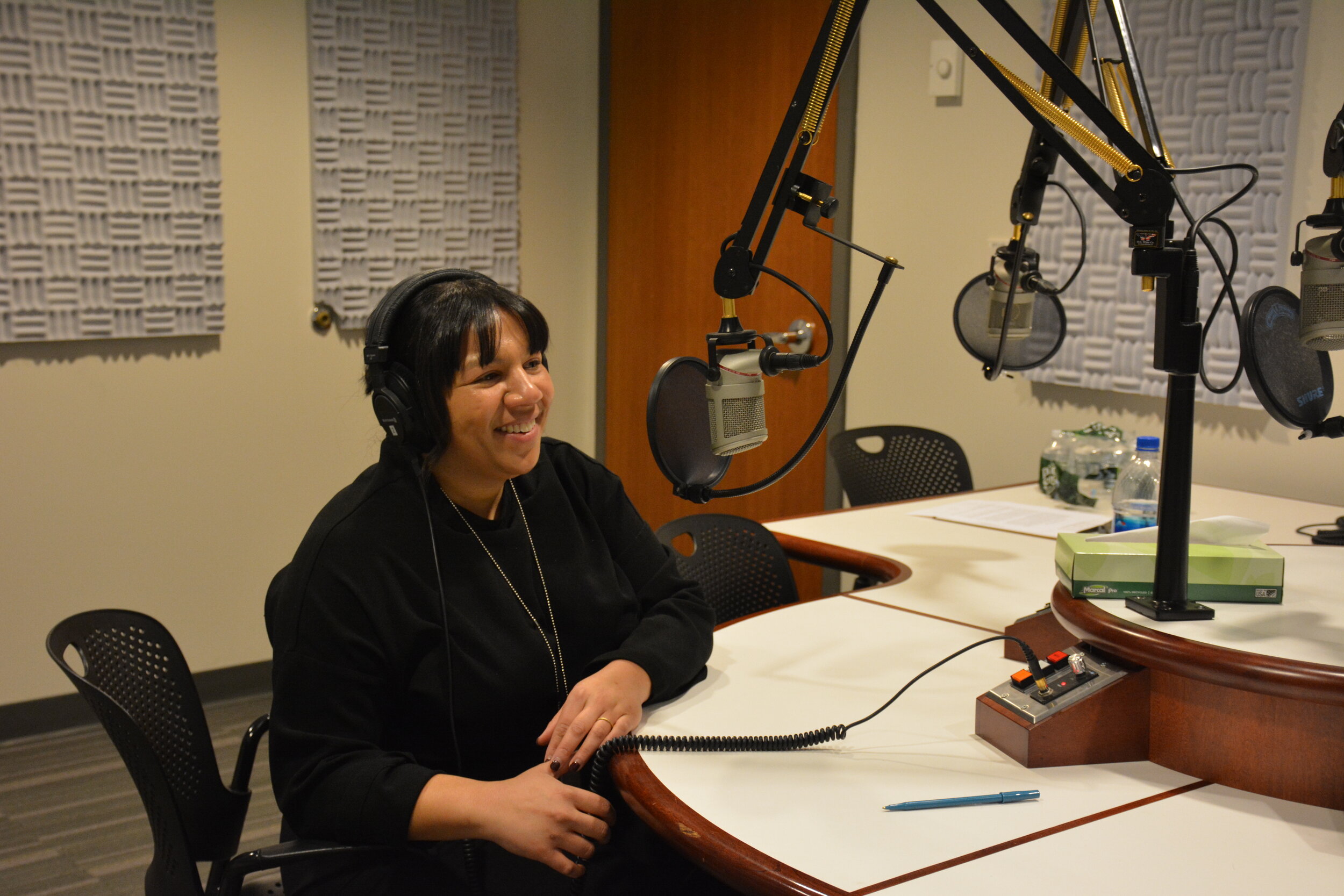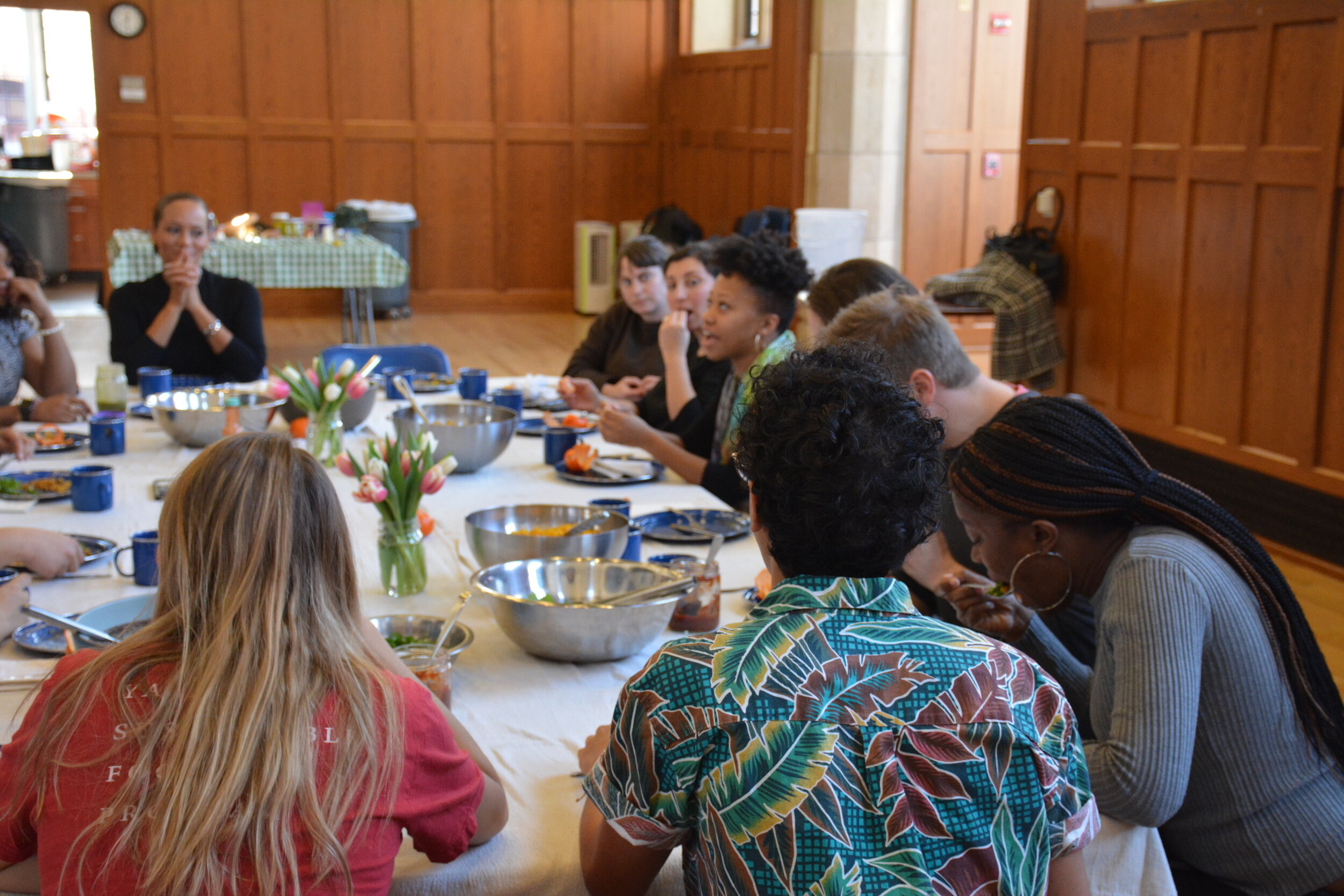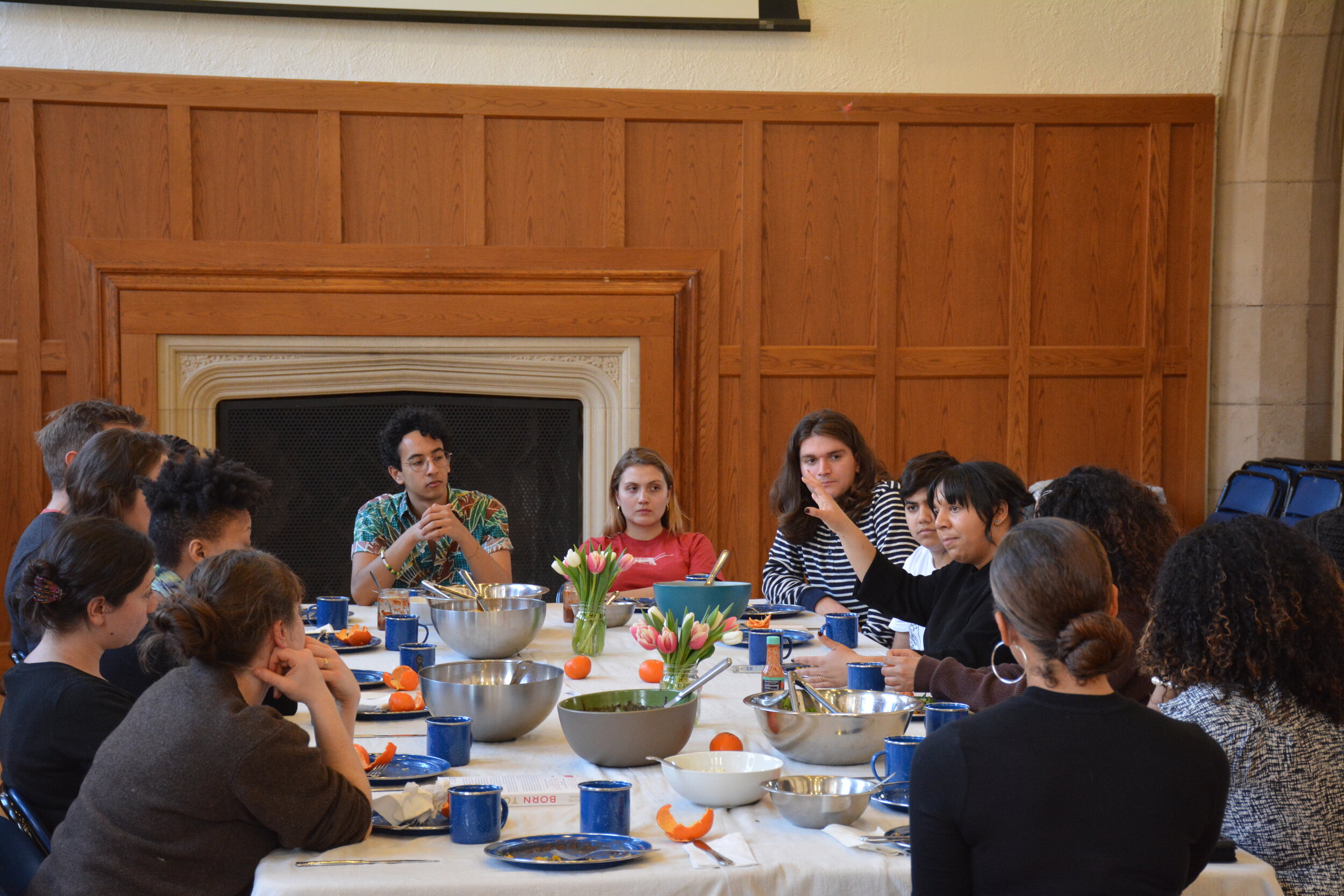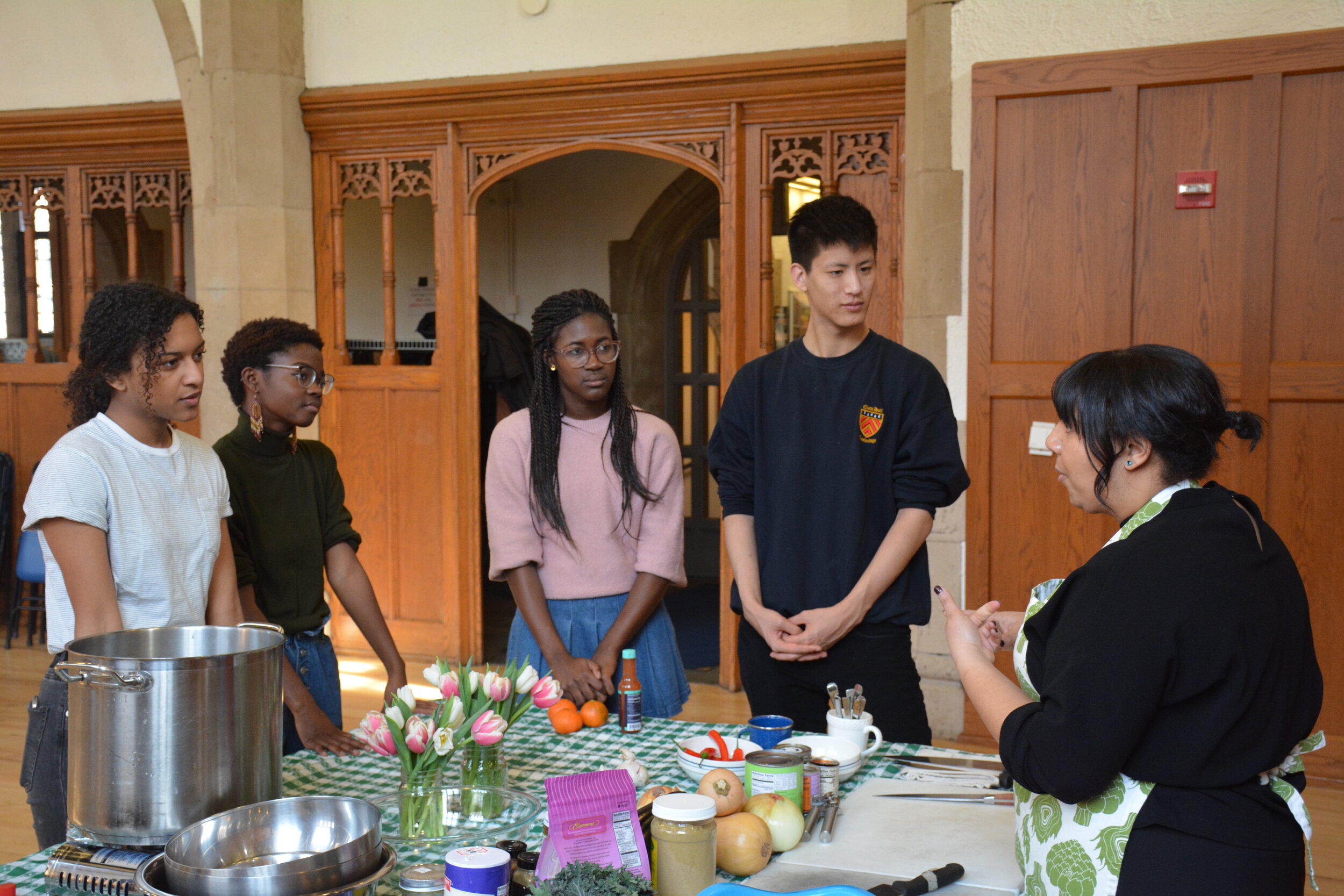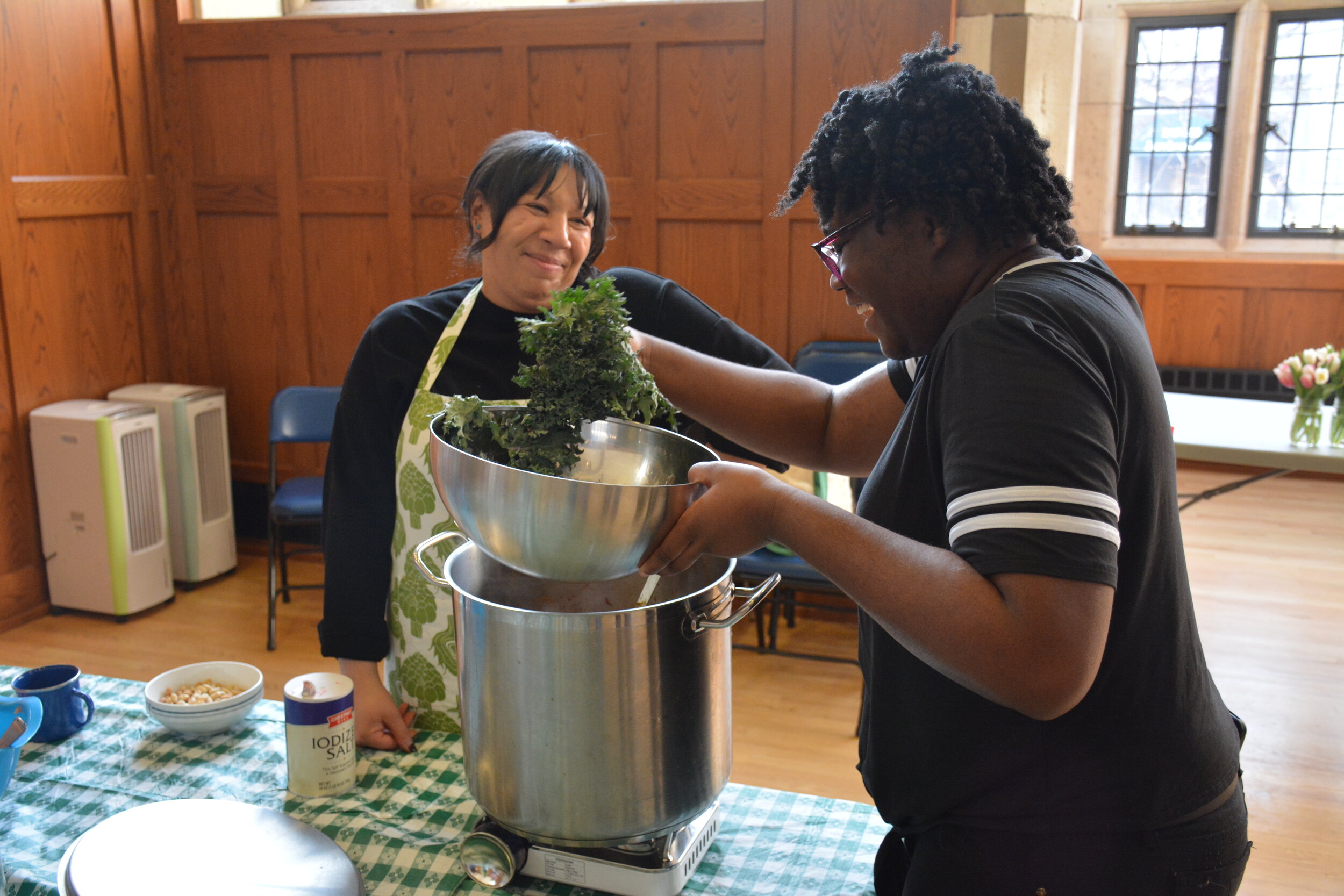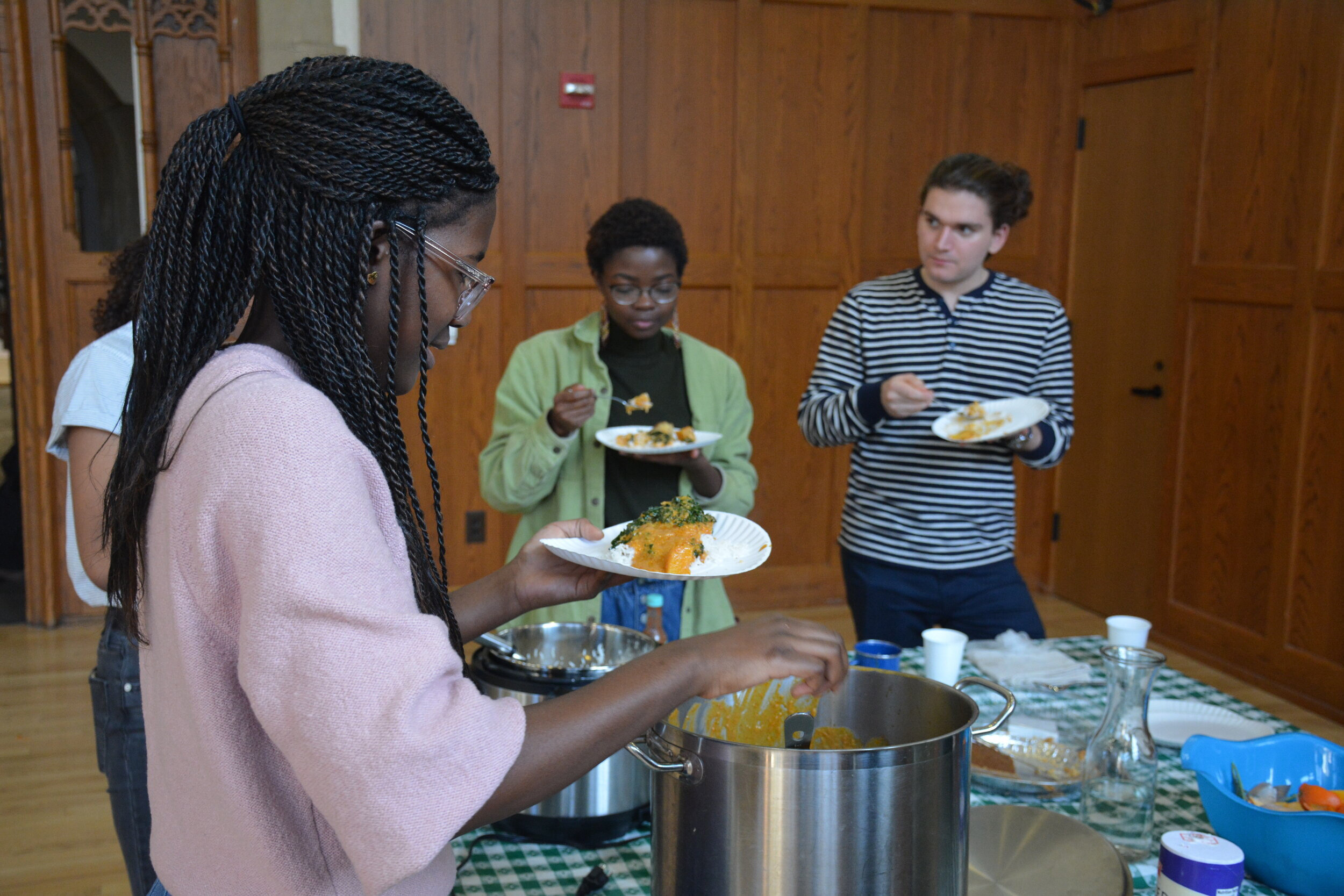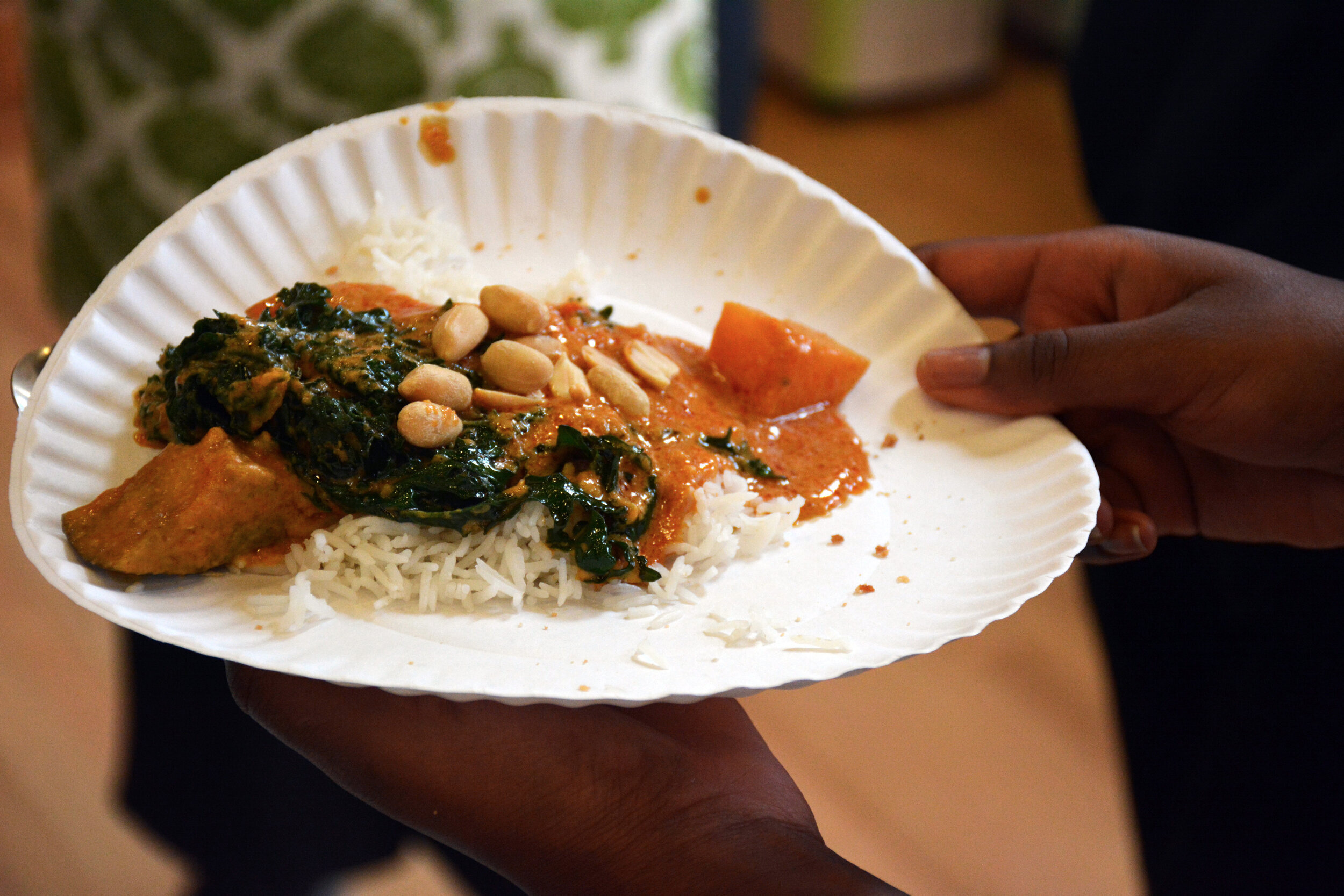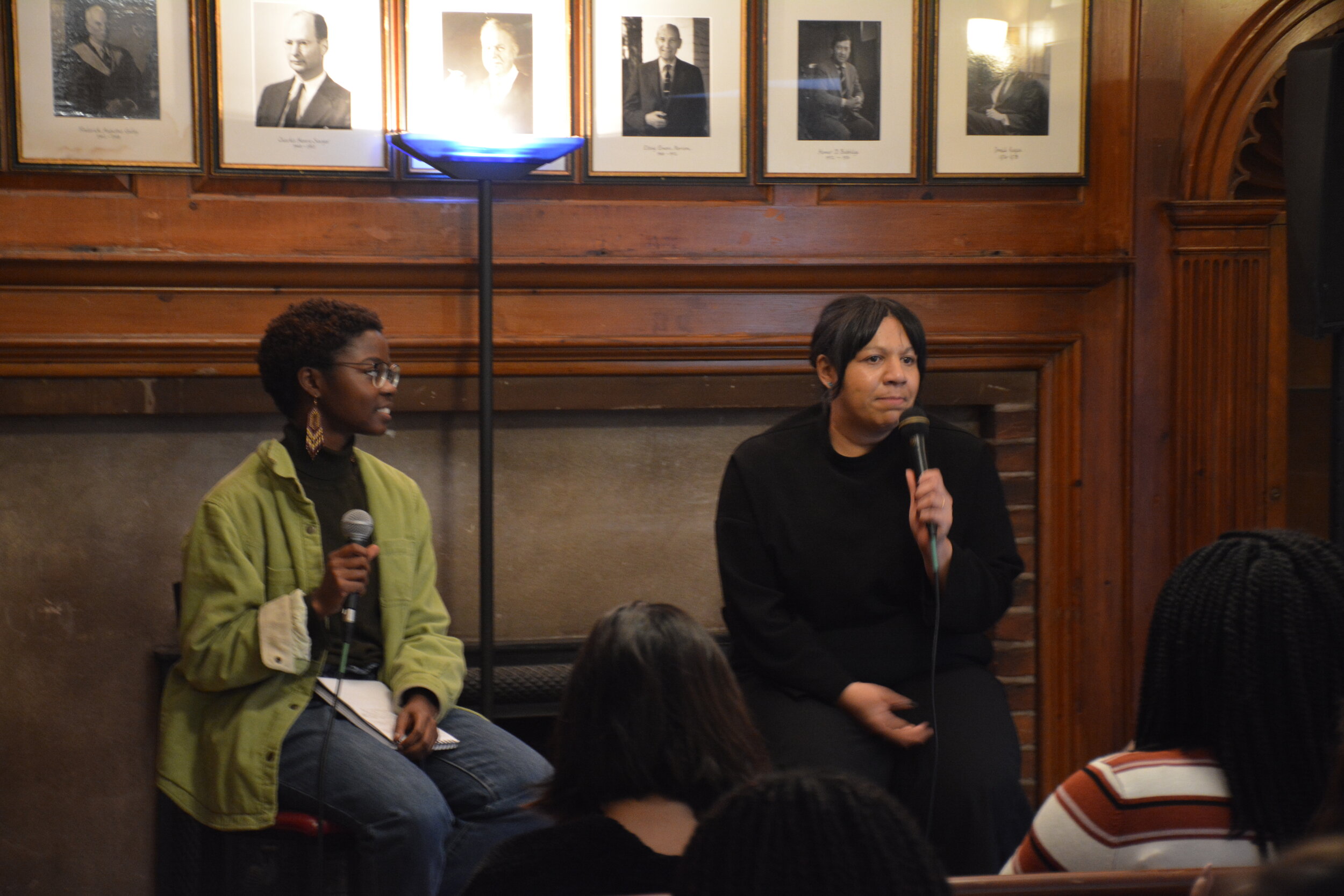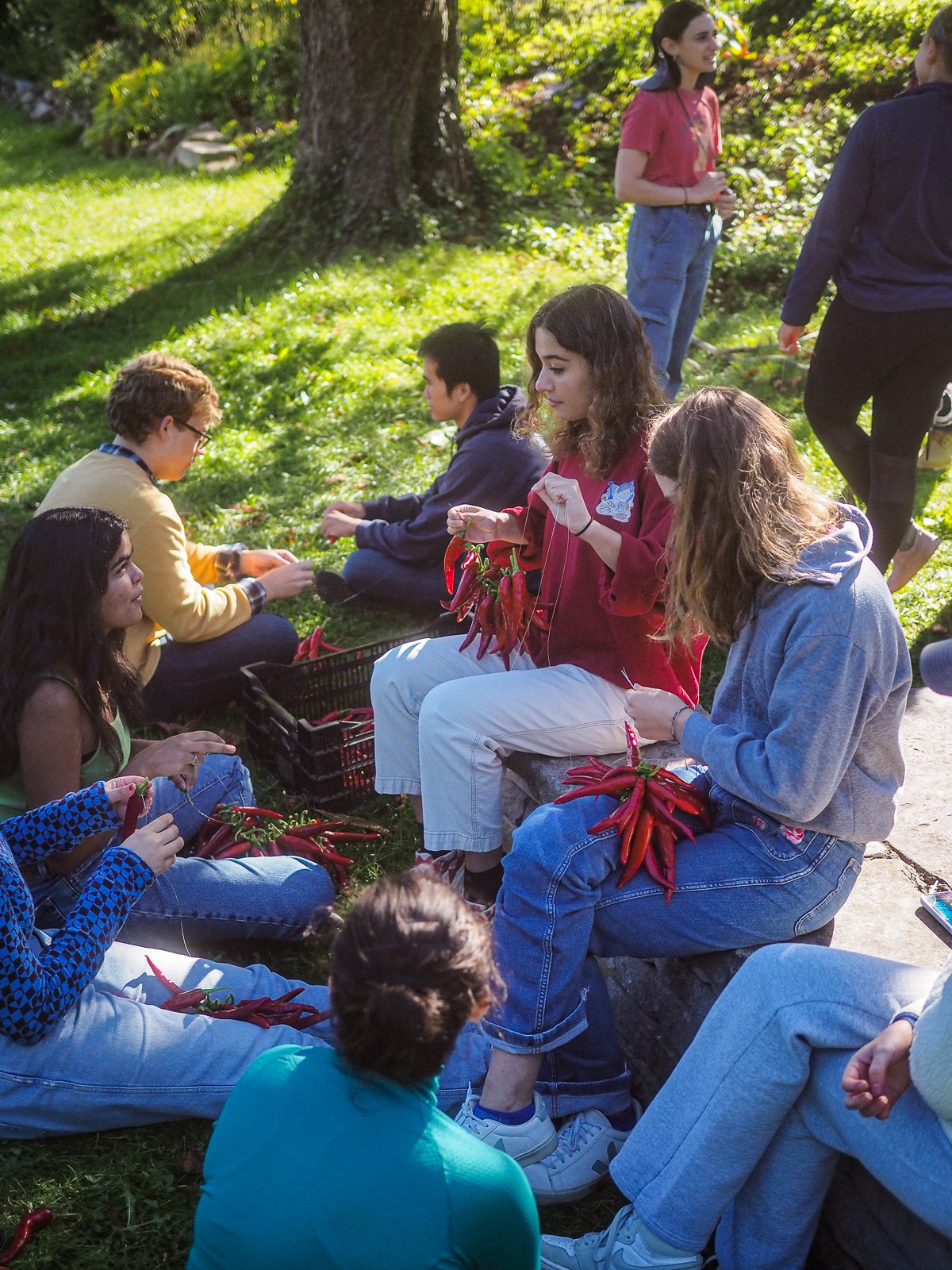
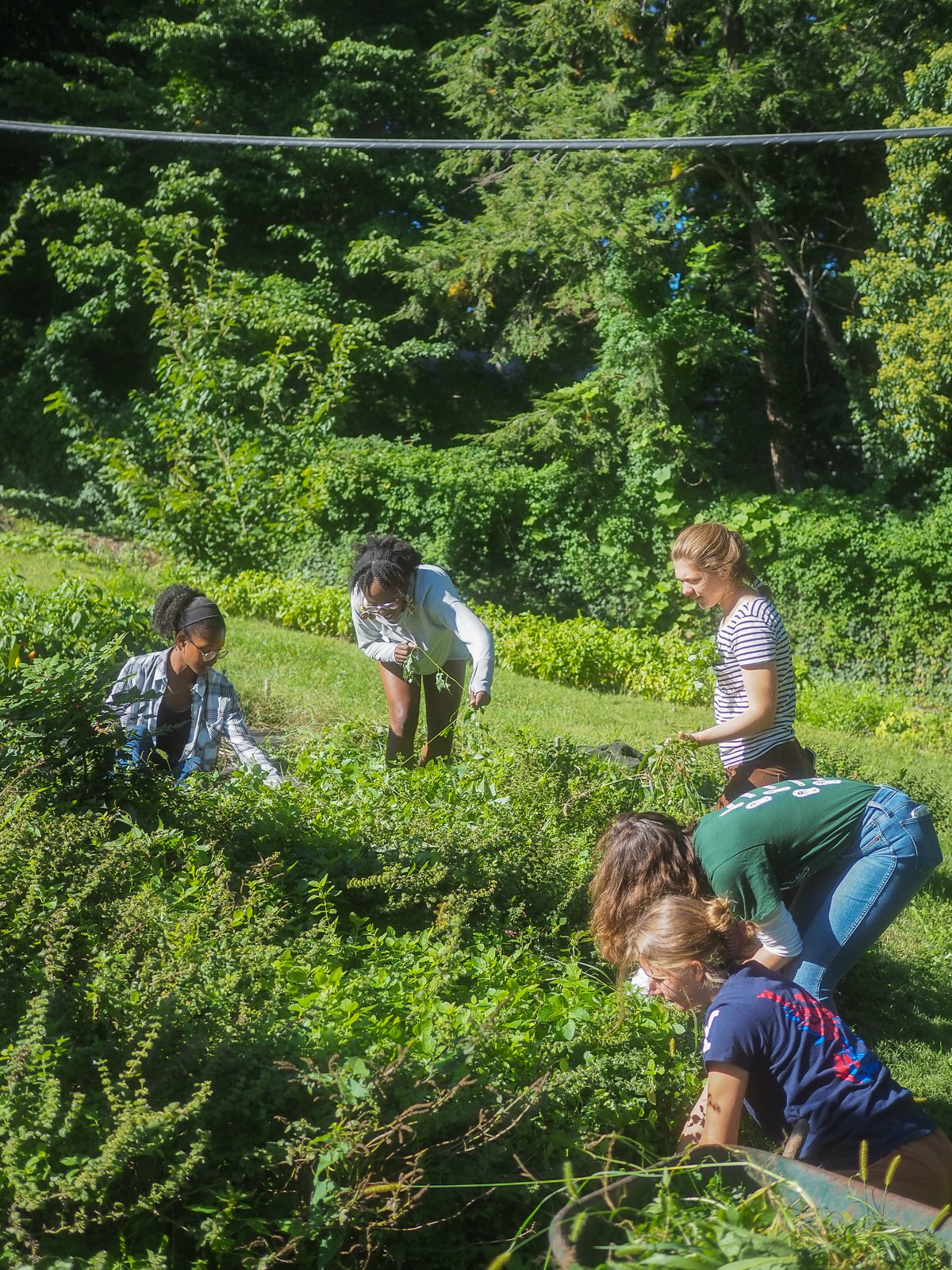
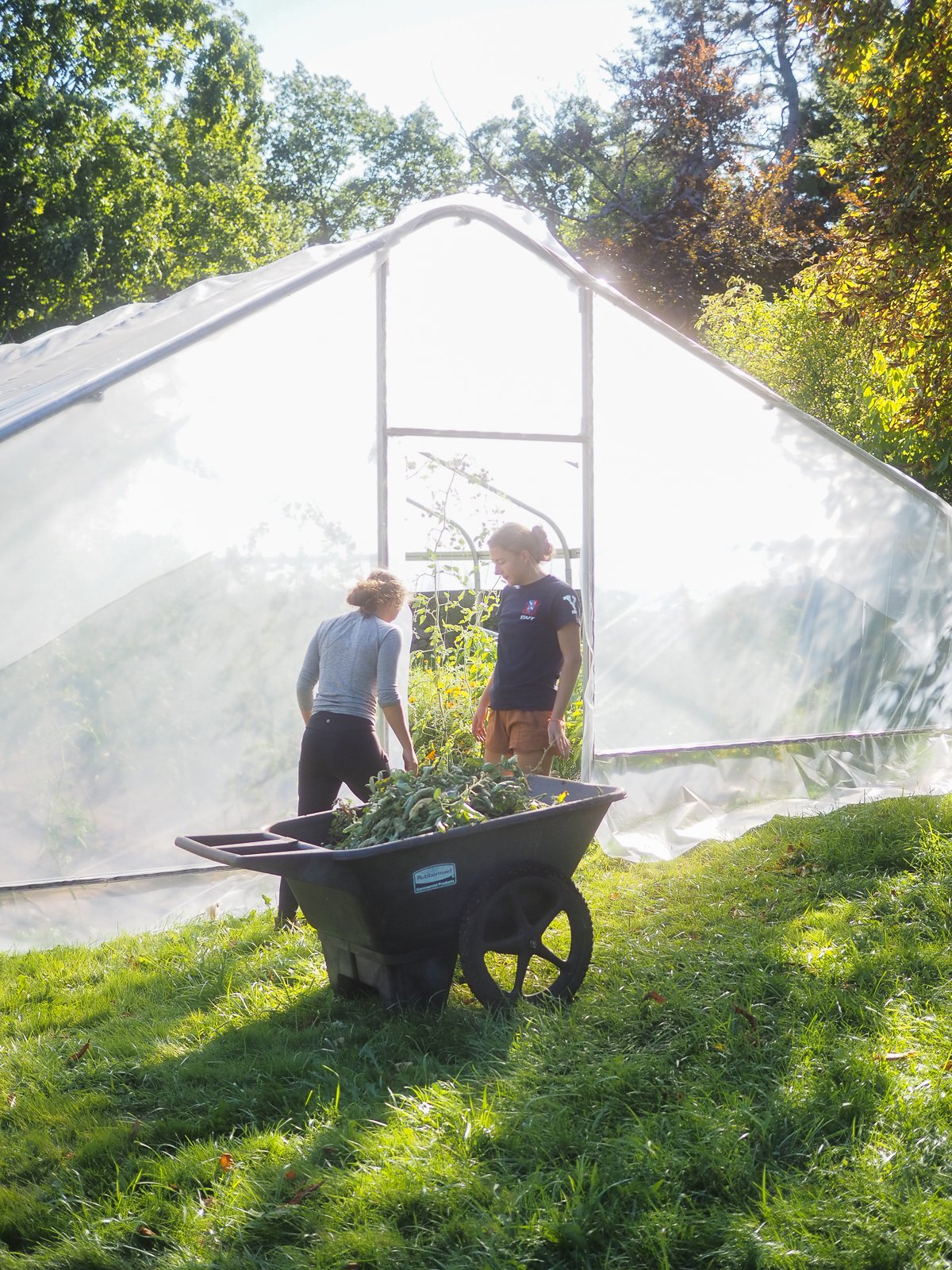
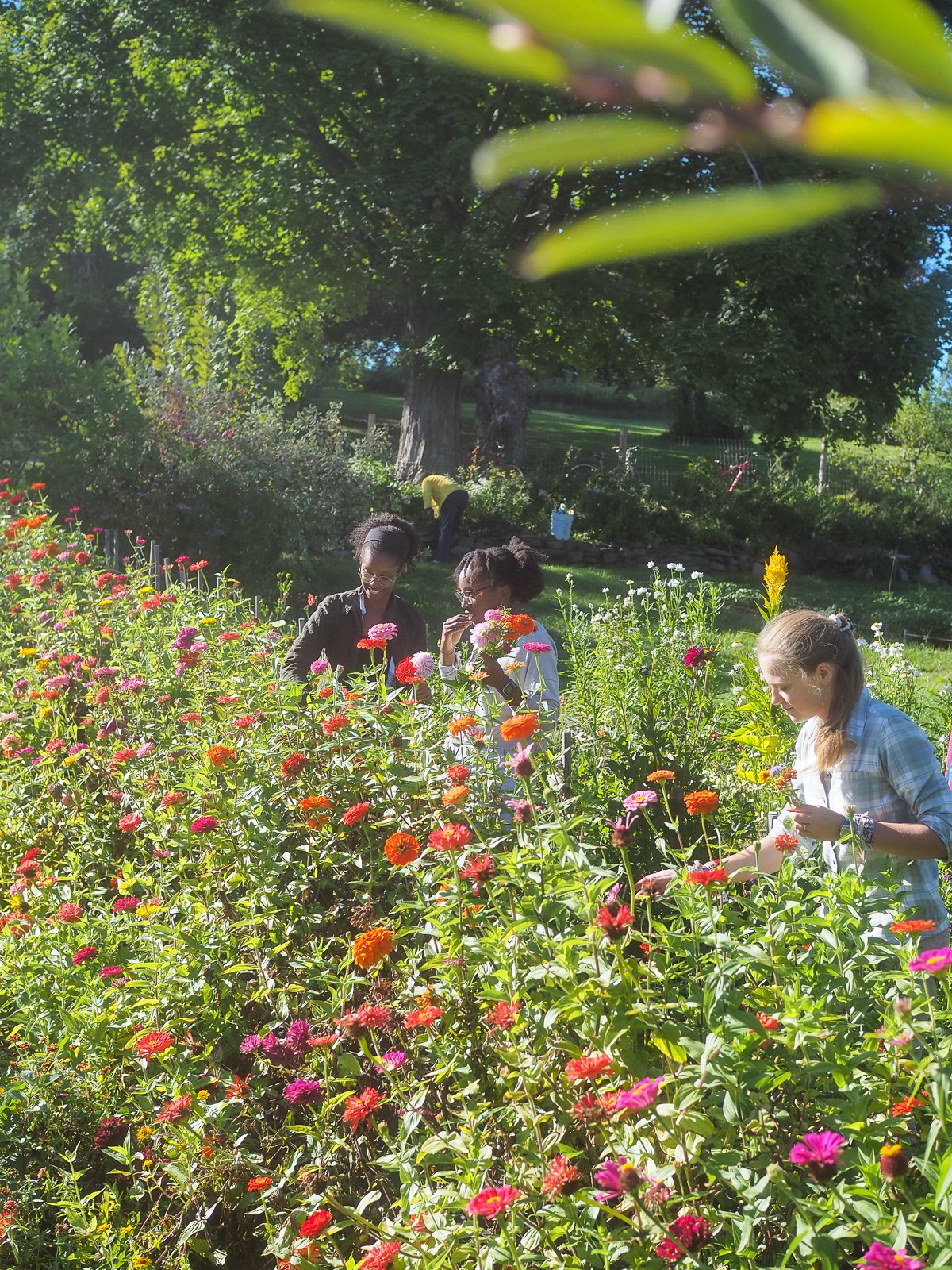
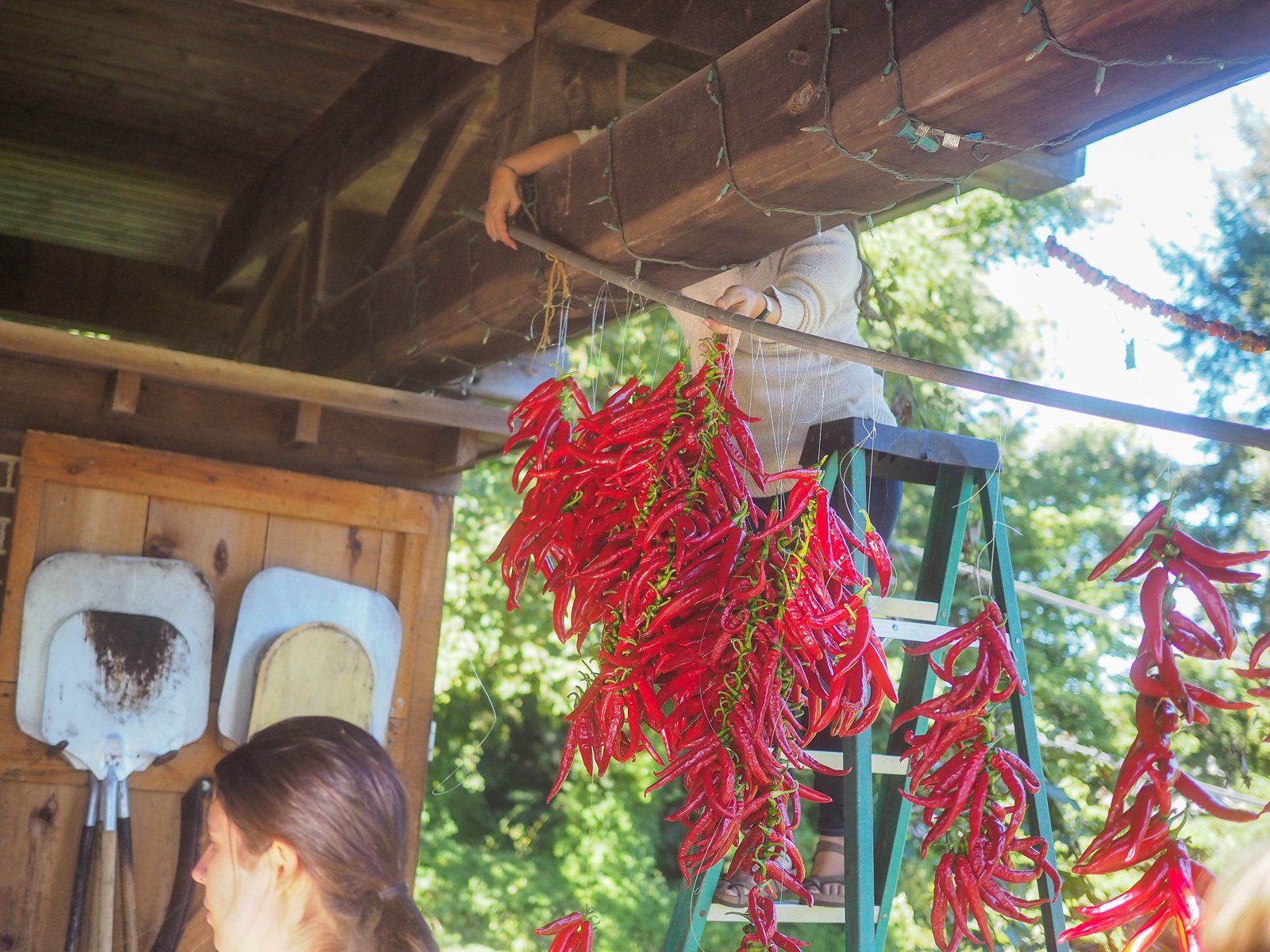
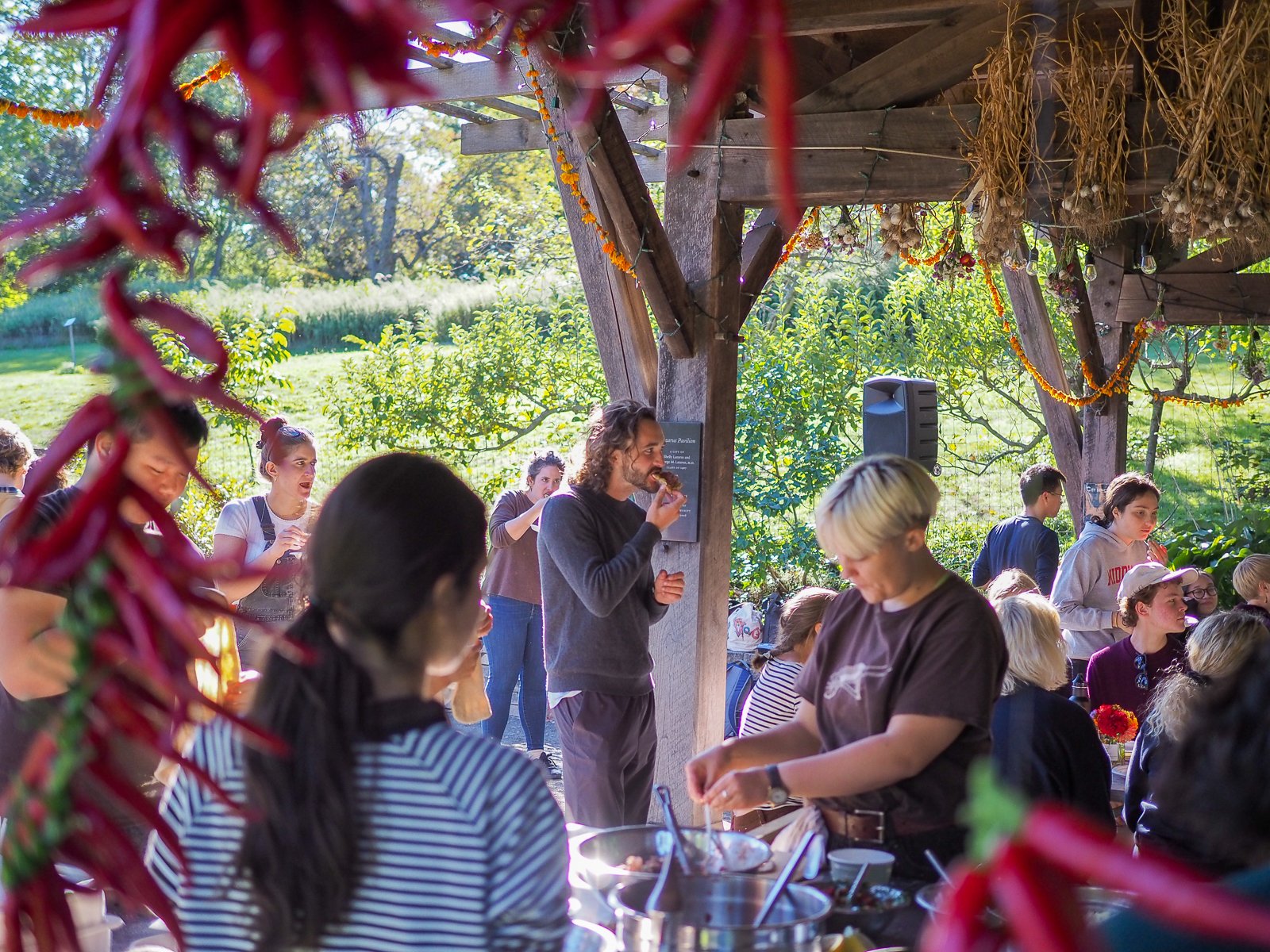
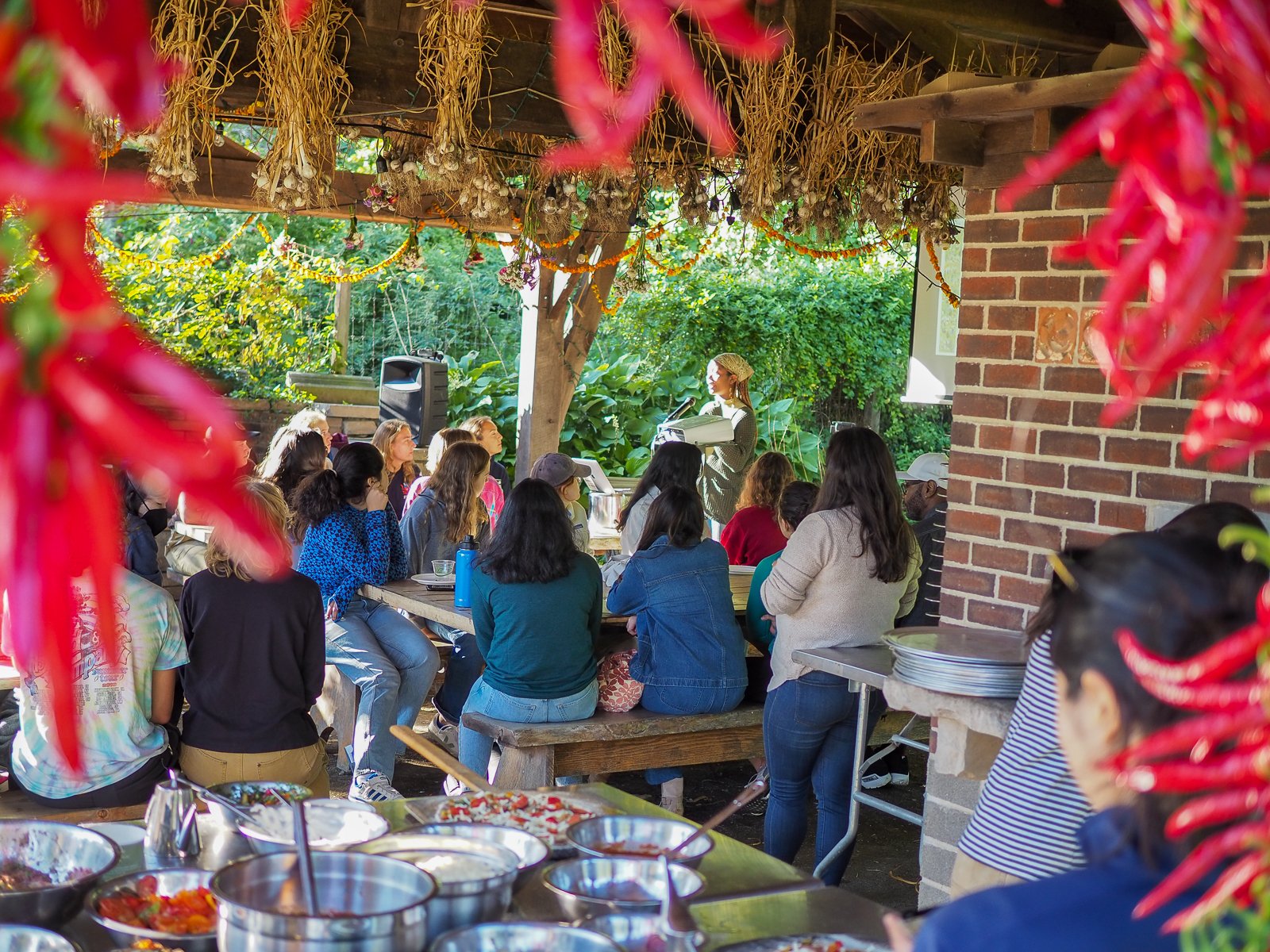
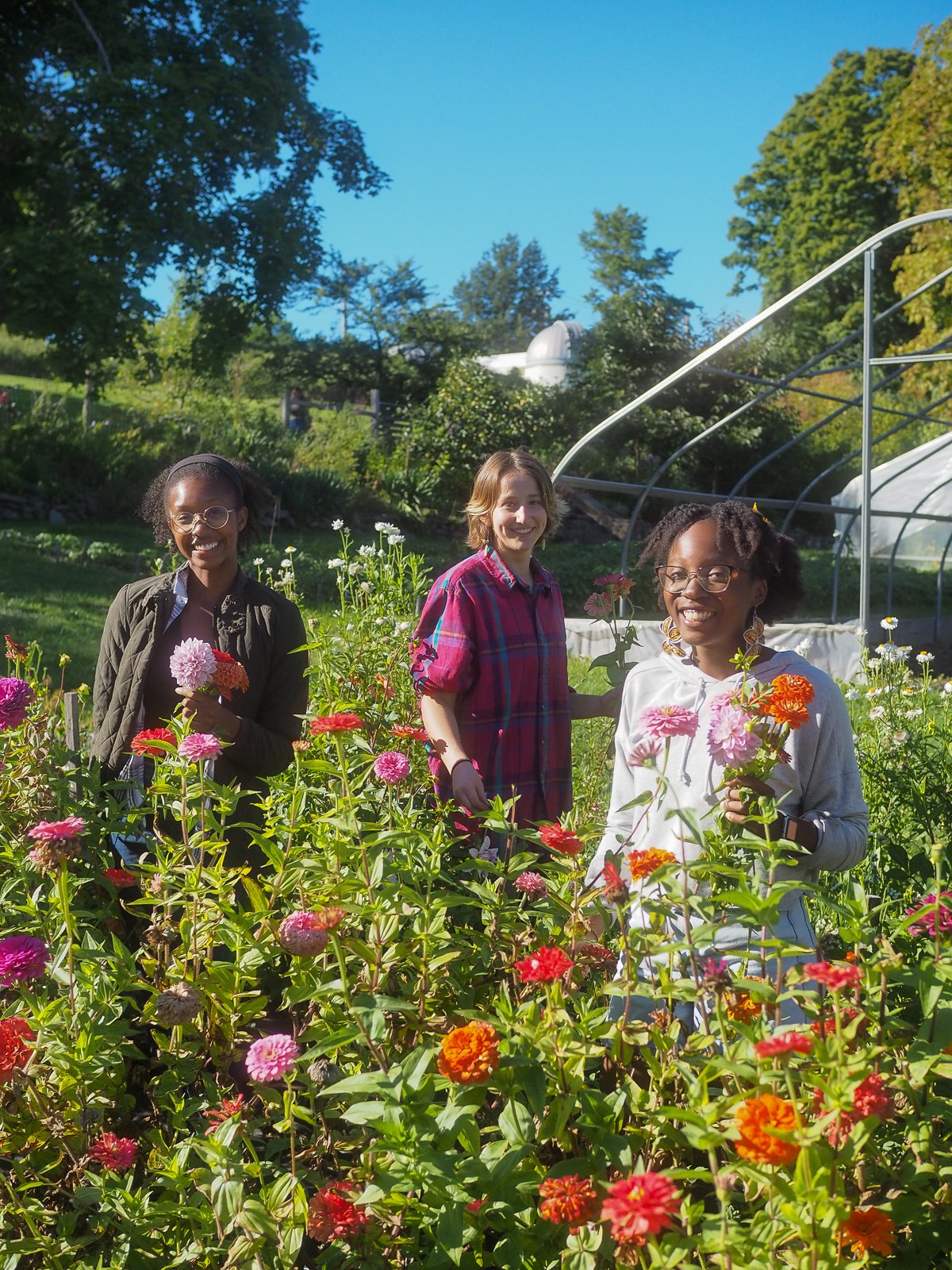
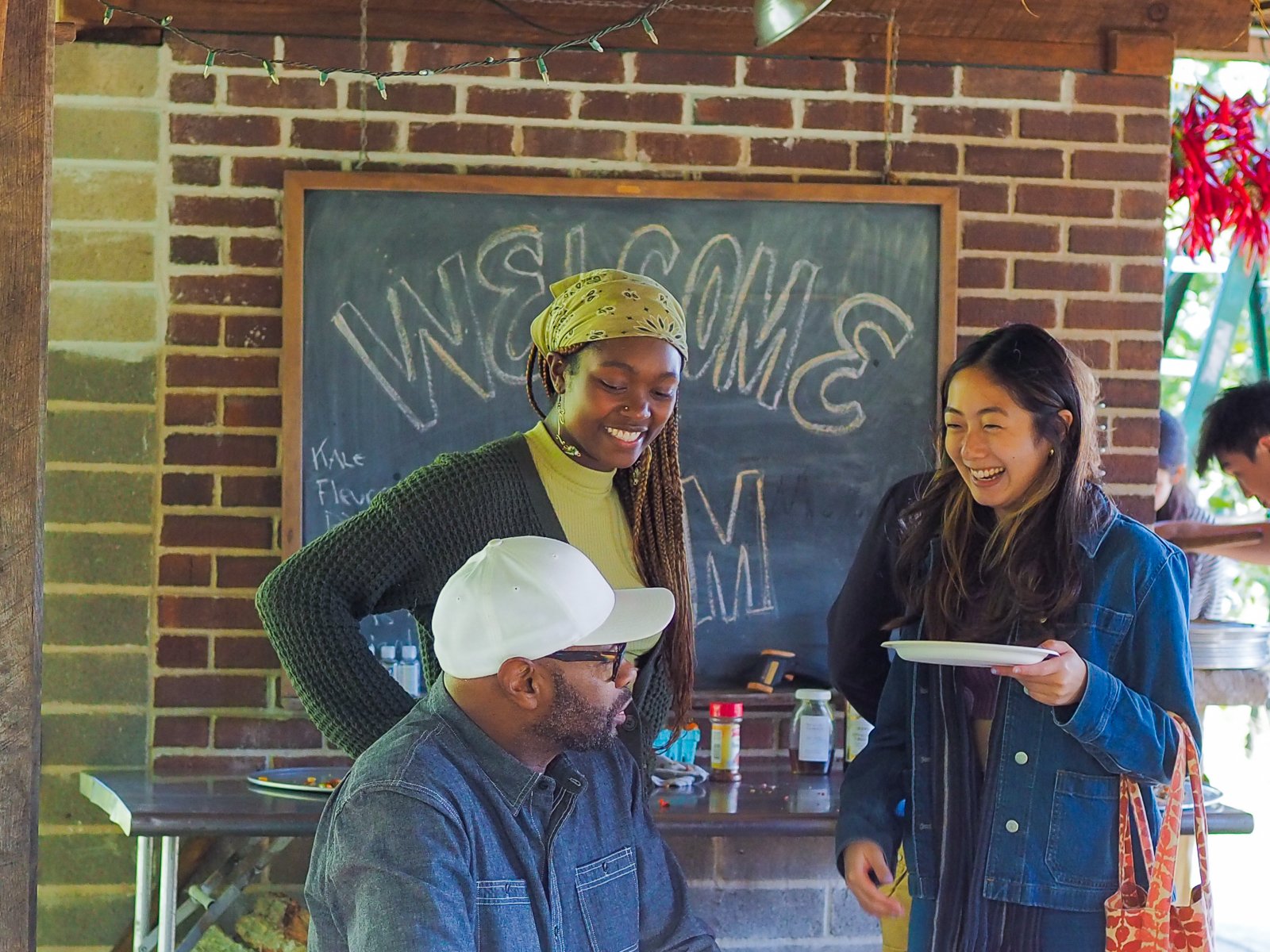
On September 23, 2022, around two dozen folks came up to the Farm to participate in our weekly workday. The fall harvest was fully upon us, and the afternoon was all about pulling, picking, and prepping.
One group pulled weeds from the lower culinary berm, a tangled texture of green. YSFP’s Manager of Field Academics Jeremy Oldfield taught attendees how to distinguish the weeds from the crops: lemon balm—a cousin of mint—was the target crop, and an eggplant cousin—with spikes!—needed to be pulled, along with unwanted veins of ivy growing in the underbrush. One group of participants dedicated itself to the berm, other students picked sweet peppers (and snuck a couple delicious bites), Still another strung up chrysanthemums.
After the berm was cleared of weeds, workday attendees took turns digging holes and planting black eyed susans. These seedlings had been growing in the Yale Science Building greenhouse for about a month, and they'll spend the next month pushing their roots into the berm. In the winter they’ll die back; come spring, they’ll bloom gold.
As the workday faded towards pizza-time, the sun started to dip towards the horizon and some workday participants wandered the flower field adjacent to Prospect Street. YSFP Communications Manager and photographer extraordinaire Reese Neal ’25 aptly noted that what makes our Farm so special is its dedication, not just to growing food and creating community, but also to celebrating the beauty that comes from working the earth.
All the while, our undergraduate culinary events team was working hard to whip up some delicious pizza and press some fresh apple cider. Workday attendees—happy to sit down after two hours of farmwork—were spoiled with platters of pizza. As they ate, former Yale Farm Summer Intern and beloved YSFP community member Donasia Gray ’23 gave a moving knead 2 know about her summer working with the Sweet Water Foundation. She helped build and grow a neighborhood space in Chicago that uplifted the local community, recycled discarded materials, and redefined public space. Afterwards, participants asked questions, ate more pizza, mingled, and laughed. As always, many thanks to those who came; and, please join us next time.


